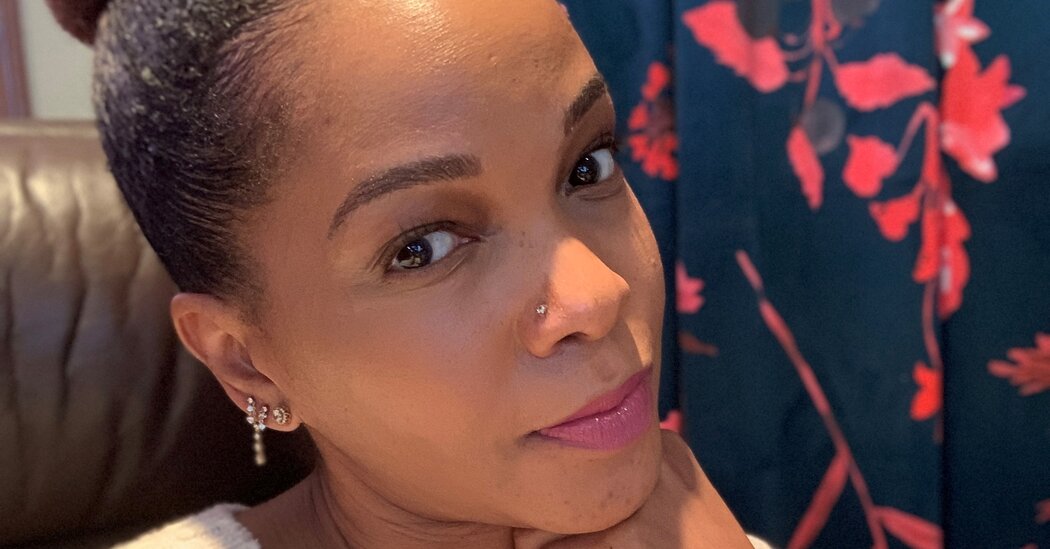SOUTH TO AMERICA
A Journey Below the Mason-Dixon to Understand the Soul of a Nation
By Imani Perry
At the start of “South to America,” Imani Perry implores the reader: “Please remember, while this book is not a history, it is a true story.” I tried to keep these instructions in mind — not always easy with a narrative so scrupulously researched and teeming with facts and citations — but ultimately, I discarded them. After all, Perry addresses everything from hip-hop to the United Fruit Company and her own grandmother. Any attempt to classify this ambitious work, which straddles genre, kicks down the fourth wall, dances with poetry, engages with literary criticism and flits from journalism to memoir to academic writing — well, that’s a fool’s errand and only undermines this insightful, ambitious and moving project.
This is no “both sides” affair: Perry is an unabashed “movement” baby, raised by intellectual freedom-fighter parents. The conviction of this book is that race and racism are fundamental values of the South, that “the creation of racial slavery in the colonies was a gateway to habits and dispositions that ultimately became the commonplace ways of doing things in this country.” In other words, the South is America, and its history and influence cannot be dismissed as an embarrassing relative at the nation’s holiday dinner table.
Inspired by Albert Murray’s 1971 memoir-cum-travelogue “South to a Very Old Place,” Perry travels to over a dozen Southern cities and towns, excavating both histories and modern realities. She begins at Harpers Ferry, W.Va. We meet Shields Green, a Black South Carolinian known as the “Emperor of New York” who was executed along with John Brown. His heroism has been nearly lost to history, and to compound the tragedy, after he was hanged his body was given to Winchester Medical College for dissection. In telling his story, Perry reveals the first of many patterns in the quilt stitched on these pages: At each stop, she recounts an atrocity, but also resistance. And she does not flinch when documenting the consequences.
From the three essays that examine Alabama it’s clear that despite a childhood in New England, Perry’s heart belongs to the idiosyncratic Yellowhammer State. Her tone grows tender as she recalls her dancing cousins or the foot-washing Baptists. Her portraits of her grandmother combine elegiac longing and the rigor of a historian setting the record straight. Equally moving are the dispatches from her mother’s native Louisiana.
The theme of unmarked graves and untold stories permeates this work. As remediation, Perry names scores of Southerners: some famous, some unknown. As Andre 3000 declared, “The South got something to say.” And it’s a breathtaking something — from fine arts to reality television, internationally traded corporations to roadside rib-shacks whose flavors inform the American palate.
Perry vowed to visit and contemplate as much of the South as possible for this project; this ambition is both gift and obstacle. The benefit of such a large canvas is that patterns are easily identified. Historical injustice such as the Wilmington Massacre cannot be dismissed as a one-off, nor can the contemporary violence of Dylann Roof, or the storied resistance of Rosa Parks. Perry finds that one “hidden virtue of an unsure genealogy is a vast archive of ways of being learned from birth.”
It is inevitable, though, that all sites will not receive equal care and attention — and clearly her loyalty is to Alabama. An acolyte of Toni Morrison, Perry nevertheless takes pointed issue with the Nobel laureate’s characterization of the women of Mobile. I understand her pain, for it is the same feeling conjured in me as I read the chapter on Atlanta, my hometown. While in some places, Perry has the benefit of a guide, here she doesn’t cite the personal conversations that led to her insights, and the resulting observations feel a bit chilly. Perry declares that “the major metropolis of the South doesn’t have a sufficient mass transit system or a polyglot culture….” but goes on to suggest that survivors of dirt roads take comfort, instead, in the shiny baubles hawked in Lenox Mall. Well, that hurt my feelings.
Wounded pride aside, it must be said that this work, though sometimes uneven, is an essential meditation on the South, its relationship to American culture — even Americanness itself. This is, as Perry puts it, “not a preservation. This is intervention.” For too long, the South has been scapegoated and reduced to a backward land on the other side of some translucent, but impenetrable, barrier.
Beyond the literal divide of the Mason-Dixon, Perry is fixated on the line that divides past and present. On her travels she encounters a Confederate re-enactor celebrating a birthday. Though he is nostalgia and revisionism made flesh, Perry finds him surprisingly pleasant. Assuming he’ll speak about “Northern aggression,” Perry chooses not to question him, and this, too, is the legacy of the intimacy of slavery — we have lived together so long that we believe we can read each other’s minds.
During her visit to Maryland, Perry sees people wearing muslin shirts and straw hats while laboring in a field. Her insides clench, fearing that she is witnessing some cruel antebellum cosplay. As she gets closer, Perry hears the men speaking Spanish. She was “sad, and also relieved. Workers, not re-enactors.” But of course, this underscores the refrain of this immersion in Southern (American) life and history — to what extent are we all re-enactors of the nation’s brutal history? This work — and I use the term for both Perry’s labor and its fruit — is determined to provoke a return to the other legacy of the South, the ever-urgent struggle toward freedom.


























